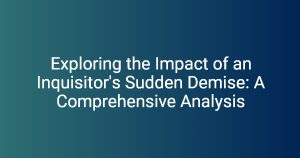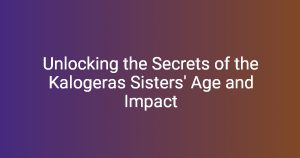Prepare to delve into the intriguing world of dark humor, a form of comedy that pushes boundaries and challenges our perception of what is acceptable to laugh at. The darkest jokes have long been a subject of fascination and controversy, leaving us with a unique blend of amusement and unease. In this comprehensive guide, we’ll explore the appeal, cultural significance, and psychological impact of dark humor, shedding light on this controversial yet captivating comedic style.
Exploring the Dark Jokes Phenomenon
Defining Dark Humor: An Unconventional Approach to Laughter
Dark humor, often referred to as black comedy, is a unique comedic genre that provokes laughter through sensitive, controversial, or morbid topics. It dares to tread where traditional humor fears to go, offering a twisted take on distressing subjects.
Unlike light-hearted humor that relies on widely relatable experiences, dark jokes thrive on the unexpected. They may turn a serious situation on its head, providing a unique perspective that leaves the audience both amused and a little uncomfortable.
The Ethical Dilemma: Finding Humor in Distressing Subjects
The controversial nature of dark humor lies in its ability to toy with societal taboos. By making light of serious issues, it can spark intense debates on the appropriateness of laughter in such contexts. The line between offensive and insightful humor is delicate, and dark jokes often toe this line.
To understand the appeal and impact of dark humor, we must dive deeper into the psychological factors that make it a compelling, if divisive, form of entertainment.
Understanding the Psychological Appeal of Dark Jokes
Cognitive and Emotional Factors: Why Do People Find Dark Humor Appealing?
The allure of dark humor is not a simple matter; it stems from a complex interplay of cognitive and emotional triggers. Here are some key factors:
Cognitive Dissonance and Surprise
Dark jokes often create a sense of cognitive dissonance, where the initial perception of a subject is challenged by an unexpected comedic twist. This surprise element can be intellectually stimulating and engaging.
Emotional Regulation and Processing
From a psychological perspective, dark humor can serve as a coping mechanism. By injecting humor into sensitive topics, it allows individuals to emotionally process challenging realities in a less confronting manner.
The Role of Shock Value: Element of Surprise in Dark Jokes
The unexpected nature of dark humor is a significant part of its appeal. Just when our minds settle into a pattern of seriousness, dark jokes disrupt this expectation, sparking an intellectual and emotional surprise.
This shock value can be a powerful tool, not just for entertainment but also for social commentary. It can be a wake-up call, a thought-provoking statement, or a subtle criticism disguised as a joke.
Navigating the Fine Line: Taste and Sensitivity in Dark Humor
Balancing Humor and Insensitivity: Walking the Tightrope
The art of delivering effective dark humor lies in the ability to balance the line between humor and insensitivity. It’s a delicate act, and even the best comedians can sometimes miss the mark.
Understanding the Line’s Significance
In this context, the line represents the boundary of what is considered acceptable humor. It is fluid and influenced by various factors, including cultural background, personal experiences, and societal norms.
Case Studies: Controversial Dark Jokes and Their Impact
To illustrate the challenges and importance of navigating this line, let’s examine a few noteworthy examples from the world of dark humor.
Historical Context: A popular comedian’s take on a sensitive historical event sparked widespread outrage. Critics argued that the joke trivialized a tragic episode in history, causing immense discomfort to those who had survived or were related to the event.
Social Media Controversy: A twitter thread went viral for its dark jokes about a recent natural disaster. While some found it comedic relief from a painful reality, others accused the thread’s author of exploiting a tragedy for personal gain and attention.
Cultural Significance and Contextual Relevance of Dark Humor
Role of Cultural Backgrounds in Interpreting Dark Jokes
The reception and interpretation of dark humor are significantly influenced by cultural backgrounds. What might be considered hilarious in one culture could be offensive or confusing in another.
Cultural Sensitivity and Adaptations
To ensure that dark humor doesn’t unintentionally cross cultural boundaries, comedians and humorists must approach their material with sensitivity and adaptability.
A Historical Perspective: Evolution of Dark Humor
Dark humor hasn’t always been as controversial as it is today. Its evolution reflects a shift in societal values and sensitivities.
Historical Examples
Exploring historical humor, from ancient satire to medieval jests, can offer insights into how dark humor has changed and adapted over centuries.
For instance, ancient Greek comedies often parodied societal norms and political figures, a form of dark humor that influenced comic drama and satire for generations.
Dark Humor as a Therapeutic Outlet: Benefits and Risks
Exploring the Mental Health Benefits of Dark Humor
Dark humor isn’t just about laughing at controversial topics; it can also be a powerful tool for emotional processing and coping with personal struggles.
Therapeutic Benefits
When used judiciously, dark humor can offer a sense of relief and emotional release. It can help individuals confront, process, and even accept their fears and anxieties through a humorous lens.
Personal Testimonials: How Dark Humor Helped Cope
Many individuals have shared how dark humor helped them navigate difficult times. These personal anecdotes highlight the therapeutic value of dark humor and its potential to unite people in shared struggles.
A cancer survivor notes, “Finding humor in my situation, no matter how dark, helped me keep going. It gave me a perspective that kept me grounded.”
Challenges and Concerns: Addressing the Harm of Dark Jokes
Critical Perspectives: Arguments Against Dark Humor
While dark humor has its benefits, it’s not without its critics. Many argue that it can perpetuate stereotypes, desensitize people to serious issues, or exploit sensitive topics for personal gain.
Stereotype Reinforcement
Some critics argue that by making light of certain stereotypes, dark humor normalizes and perpetuates these harmful associations, negatively impacting societal perception and treatment of marginalized groups.
Exploring the Grey Areas: Blurred Lines between Comedy and Trivializing
One of the most challenging aspects of dark humor is the frequent debate over where the line is drawn between comedic expression and trivializing serious matters.
Context and Intent
Understanding the intent behind a dark joke and its contextual relevance is crucial. A joke that seems insensitive without context might be a powerful statement when viewed in a broader perspective.
Light in the Darkness: The Uniting Power of Dark Jokes
Bringing Communities Together: Shared Understanding through Dark Humor
Despite its controversial nature, dark humor can also unite communities and create a sense of camaraderie. Shared understanding and an ability to confront difficult topics together can foster a deep connection.
For instance, in the aftermath of a natural disaster, dark humor about the situation can provide a much-needed outlet for collective stress and anxiety.
Promoting Responsible Dark Humor: A Call for Awareness
To ensure that dark humor remains a form of entertainment rather than a source of hurt or discomfort, a responsible approach is necessary.
This includes understanding cultural sensitivities, respecting the boundaries of others, and being mindful of the potential impact of one’s jokes.
Awareness and education are key to navigating the world of dark humor successfully, for both creators and consumers.
Table: Dark Humor and Controversial Topics
| Topic | Example Dark Joke | Cultural Sensitivity | Controversial Reception |
|---|---|---|---|
| Death/Funerals | “My friend swore that if he died, he wanted me to speak at his funeral. Now I’m practicing my impressions of him.” | Varies based on cultural practices surrounding death and funerals. | Can be seen as insensitive, but also highlights the universality of grief and the comfort of humor in difficult times. |
| Mental Health | “I have so much anxiety that my brain even categorizes my anxiety.” | Varies based on the stigma and openness surrounding mental health in different cultures. | Could be considered trivializing to some, while others find it a relatable and light-hearted approach to a serious topic. |
| Political Satire | “If politicians really wanted to make a difference, they’d legislate against the weather.” | Varies based on the political climate and societal norms of a region. | Controversial due to the potential for political satire to be seen as disruptive or disrespectful, especially in less open political environments. |
| Social Commentary | “The future of our species is secure, as long as male birth control requires cutting a hole in the box.” | Influenced by cultural attitudes towards gender roles and sexuality. | May be seen as progressive by some and controversial or insensitive by others, depending on their stance on gender-based issues. |
| Religious Themes | “Dear God, I know I shouldn’t ask you for things, but I really need to win this lottery.” | Sensitive and varies considerably across different religions and beliefs. | Rarely met with humor; more likely to cause offense and spark debates about the boundaries of religious sensitivities and the ethics of comedy. |
Frequently Asked Questions (FAQ) about Dark Humor
What defines a dark joke or black comedy?
Dark jokes, or black comedy, are comedic expressions that deliberately exploit sensitive, taboo, or disturbing subjects for humor. They navigate the fine line between what is acceptable and what is considered inappropriate or controversial.
Is dark humor universally appreciated, or does cultural context play a role?
The appreciation for dark humor is highly subjective and largely dependent on cultural, social, and personal contexts. What may be a hilarious joke in one cultural setting could be highly offensive in another.
Can dark humor be a therapeutic tool for coping with personal issues?
Absolutely! Many individuals find that dark humor provides a unique perspective and a certain power to confront and process difficult emotions and situations.
What are some common themes or subjects explored in dark humor?
Dark humor often explores topics such as death, illness, societal taboos, political satire, and dark aspects of human nature. It provides a comedic twist to subjects that are usually considered too serious or somber.
How can one determine whether a dark joke goes too far or becomes insensitive?
Determining the line between playful dark humor and insensitivity is challenging and often depends on context. It’s essential to consider factors like cultural norms, intent, and the potential impact on those with lived experiences related to the topic.
Are there any strategies to engage with dark humor responsibly?
To engage with dark humor responsibly, it’s crucial to approach it with sensitivity, self-awareness, and respect for the cultural and individual differences that may shape the reception of such humor.











